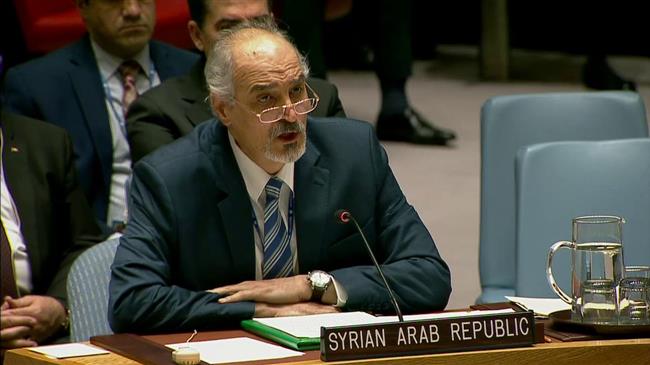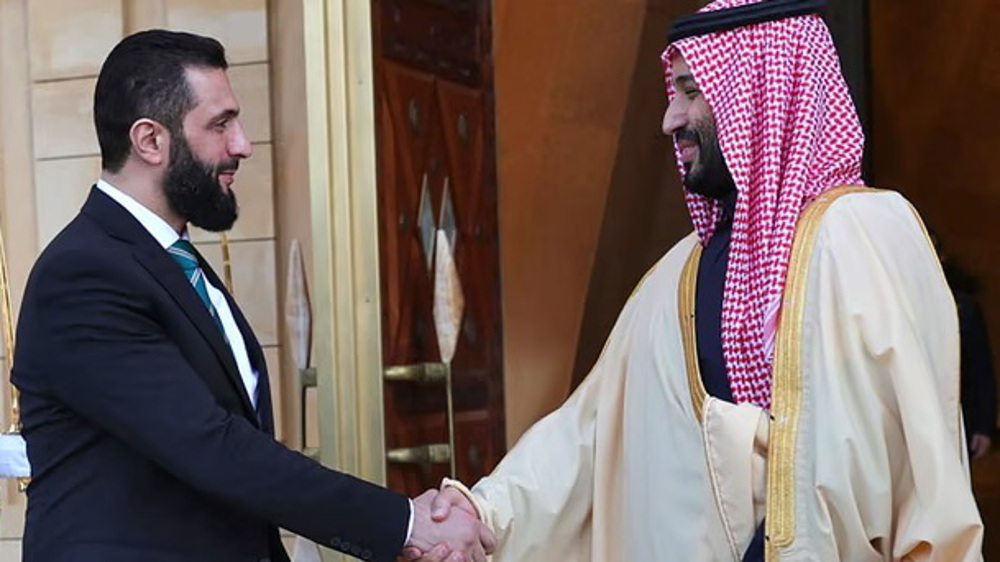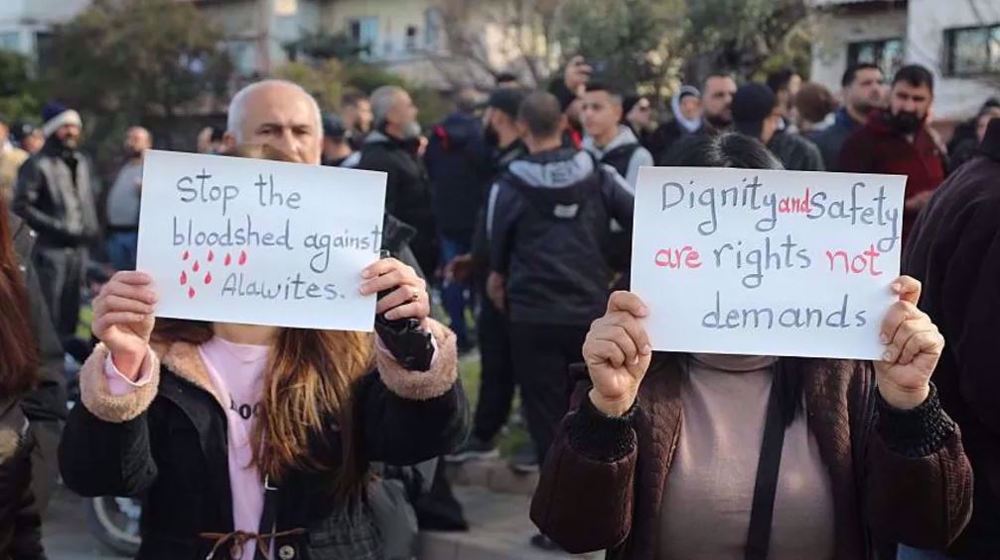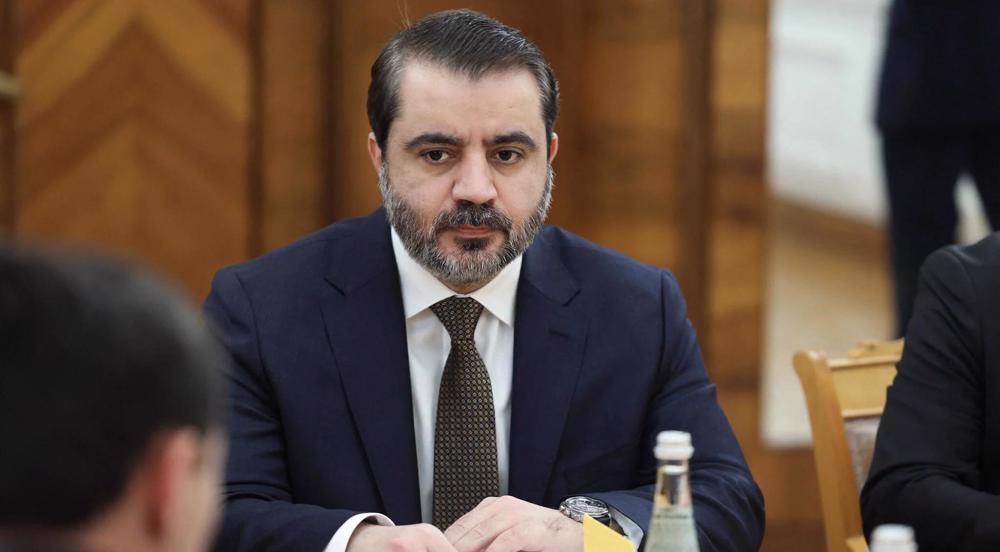Syria open to any initiative making way for resolution of country's crisis: Ja'fari
The United Nations Security Council has held a meeting on Syria with a focus on a UN-backed constitutional body for the crisis-hit country, days after the three mediators of a peace process in Syria reached a set of agreements in Geneva, Austria, on the issue.
Addressing the Security Council session on Thursday, Syria’s Permanent Representative to the UN Bashar al-Ja’fari said his country is open to any initiative that could help it put an end to the ongoing crisis.
Noting that Syria is ready to actively participate in any genuine effort to reach a political solution for the country’s crisis, Ja'fari added that such a solution must make way for Syrians alone to decide their future without any foreign intervention.
Syria’s UN envoy said the international community has to help the country end the terrorist war and eliminate the remnants of the terrorist organizations, emphasizing that Syrian people were writing the last chapter of their fight against terrorism.
Slamming the Western states for their support for terrorist groups in Syria, Ja'fari stated that although Western countries claimed to be committed to Syria’s sovereignty, independence and territorial integrity, they committed acts of aggression against the country and attacked parts of its territories.
Iran: Illegal foreign forces must leave Syria
Meanwhile, Iran's Deputy Ambassador to the UN Es'haq Al-e Habib also addressed the session, urged the world body to throw its weight behind the ongoing political process on Syria and help rebuild the war-wracked country.
The senior Iranian diplomat further called for the withdrawal of the foreign forces operating on Syrian soil without the Damascus government's permit.
Al-e Habib further emphasized the need for the continuation of peace efforts in parallel with counter-terrorism battles based on international law.
It is the Syrian people who can decide their country's fate, and the international community can only help facilitate that process, he added.
UN envoy on Syria's constitutional body
Separately, the outgoing UN envoy to Syria, Staffan de Mistura, briefed the Security Council session on the outcome of the Geneva talks two days earlier, which were attended by top diplomats of Iran, Russia and Turkey.
"We have nearly completed the work of putting in place a constitutional committee to draft a constitutional reform, as a contribution to the political process -- but there is an extra mile to go," the UN diplomat said.
De Mistura said the committee would not be in place by year's end as was hoped.
"I deeply regret what has not been achieved, and I am sorry more was not possible," he added, reporting issues with a list of participants proposed by the government in Damascus.
The 15-nation UN body convened two days after Iran, Russia and Turkey agreed during the negotiations in Geneva to step up efforts aimed at convening the first session of the UN-sponsored Syrian Constitutional Committee early next year.
Syria’s constitutional committee was agreed during talks in Sochi, Russia, which took place earlier this year as part of the peace process, which has been underway between the Syrian government and armed opposition groups in Astana, Kazakhstan, since January 2017.
The body will include 50 members from the incumbent Damascus government and 50 opposition members. The final 50 members will be independent and chosen by the United Nations.
AFP cited a diplomat as saying on condition of anonymity that Damascus has blocked the composition of the third group, and recently proposed its own "17 name changes" to the list.
The Syrian government's proposal has been backed by Turkey, Iran and Russia. However, the UN said the changes would alter the balance of the group, adding that it could only accept six of them, according to the source.
Commenting on the issue, De Mistura said, "The United Nations, having examined the names, assessed that we would not feel comfortable yet giving the UN stamp of legitimacy to all 50 of them as meeting the necessary criteria of credibility and balance - hence the need for going an extra mile," calling some of those Syria had sought to exclude "natural bridge-builders."
The creation of the UN-backed constitutional body has been just one of the achievements of the Astana process, which has significantly reduced the violence in Syria by creating four de-escalation zones there.
News of US withdrawal plan
The Security Council meeting comes after President Donald Trump announced an abrupt decision to withdraw American troops from Syria after declaring victory over the Daesh Takfiri terror group there.
Trump's announcement has raised concerns among its European and regional allies, which have long been supporting a myriad of militants as part of a Washington-led campaign against the Syrian government.
Britain, Germany and France reacted to the news with alarm on Thursday, while Russian President Vladimir Putin -- whose country, along with Iran, has been helping the Syrian army in its fight against terror -- welcomed Trump's decision and said he was "right" to do so.
Speaking at the Security Council, Rodney Hunter, the political coordinator of the US mission to the UN, said his country " remains committed to the permanent destruction of ISIS and other terrorist groups in Syria and around the world," using an acronym for Daesh. However, he made no mention of Trump's decision.
Reports said earlier in the day that US special representative for Syria, Jim Jeffrey, had canceled planned meetings at the United Nations on Thursday.
"Given recent developments, Ambassador Jeffrey will stay in Washington in order to engage with our partners and allies on the way forward in Syria," a State Department official was quoted as saying by Reuters.
VIDEO | British Museum removes Palestine from exhibit labels
VIDEO | 'Justice for Palestine' protest held in Paris
Potential US attack on Iran to be met with decisive missile force: Lebanese MP
VIDEO | Ramadan begins in France amid optimism, challenges
Hamas: Huckabee’s remarks expose ‘American bias towards Zionist domination, annexation’
‘We will not bow to pressure or coercion’: President Pezeshkian
Trump raises global tariffs to 15%, calls Supreme Court ruling ‘ridiculous’
IRGC Navy tests Sayyad-3G air defense missile in Strait of Hormuz












 This makes it easy to access the Press TV website
This makes it easy to access the Press TV website